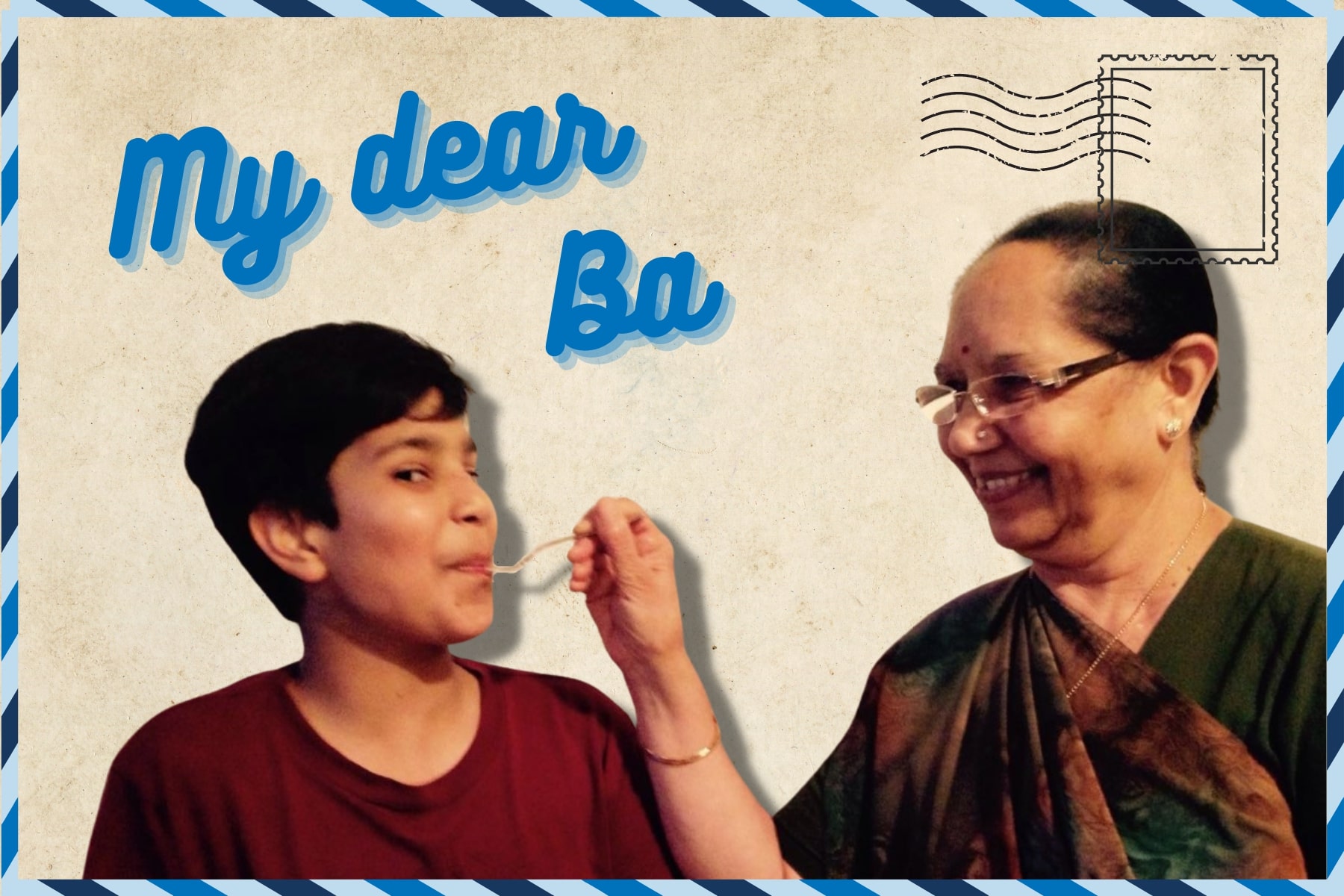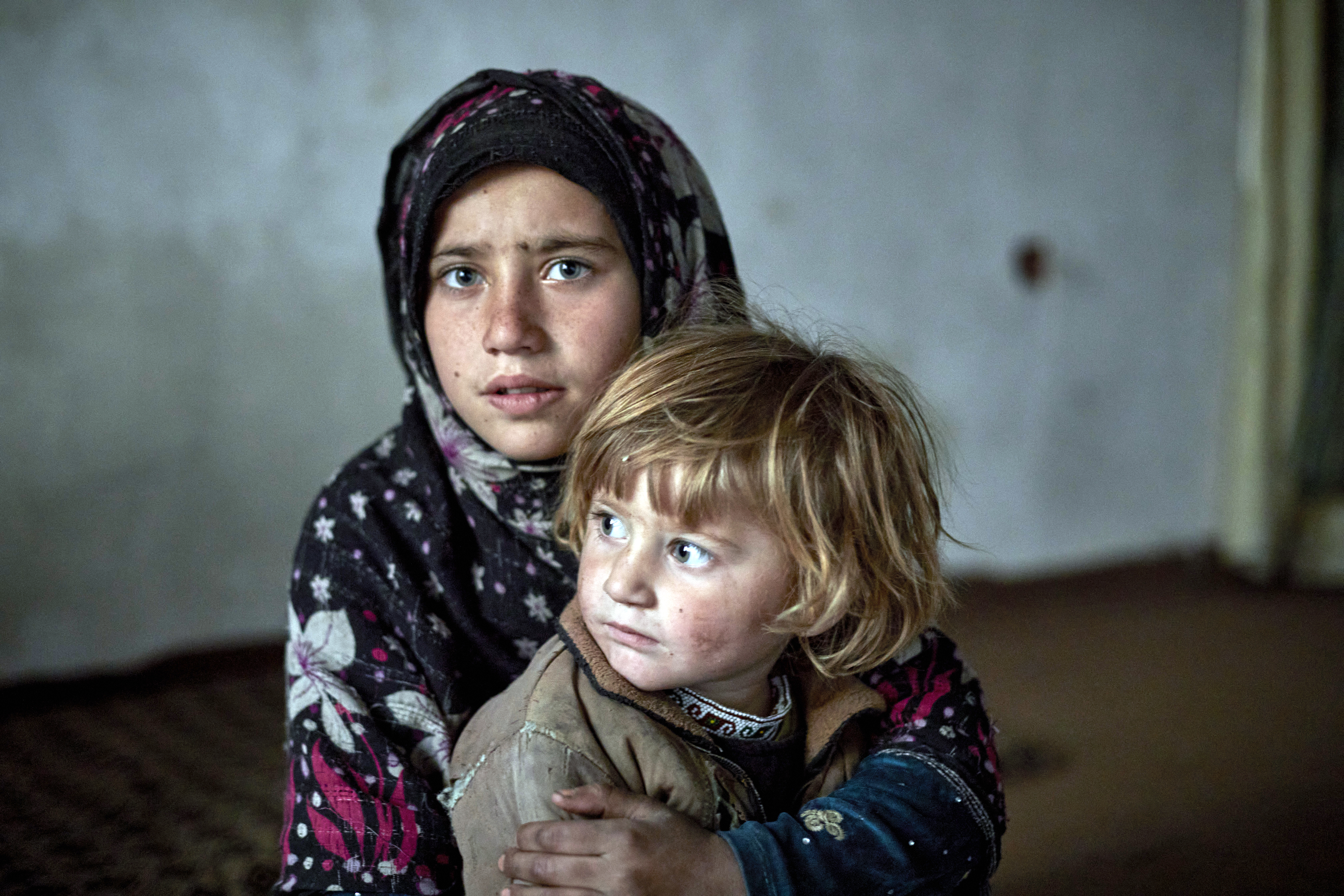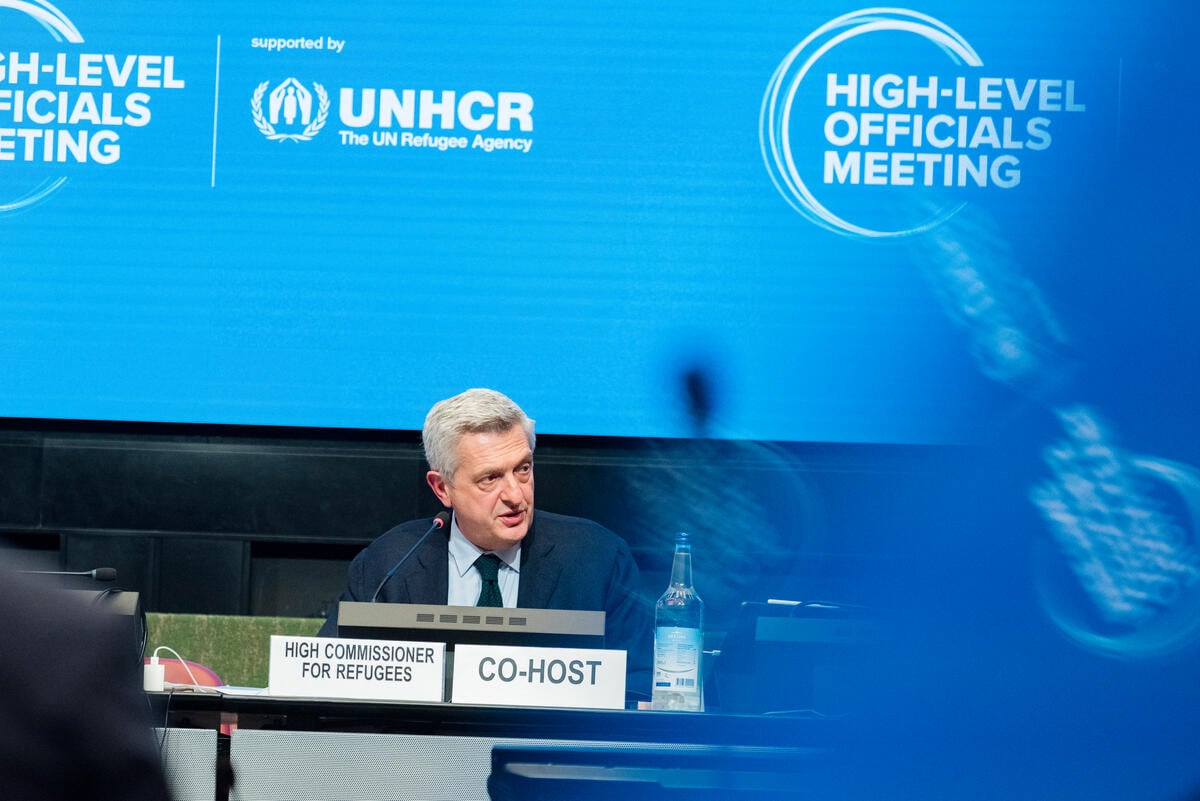Vulnerable Palestinians head towards a new life in Iceland
Vulnerable Palestinians head towards a new life in Iceland

GENEVA, September 8 (UNHCR) - A group of 29 Palestinian women and children refugees were on their way Monday to a new life in Iceland after spending the last two years stranded in a makeshift desert camp on the Iraq-Syria border.
"They are now on their way to London before continuing to Reykjavik," Philippe Leclerc, UNHCR's deputy representative in Syria, said on Monday. The group gathers eight families headed by women, several of whom lost their husbands during the conflict in Iraq.
Given their vulnerability, UNHCR considered resettlement to be their only option. Iceland takes 25-30 refugees for resettlement annually and in recent years has focused in particular on resettling single women and single mothers with their children.
After arrival late Monday in Iceland, the refugees will be taken to the seaport of Akranes about an hour's drive north of the capital, Reykjavik. They are likely to suffer culture shock and have problems learning the language, but Iceland has good experience of resettling and reintegrating women and children at risk.
The refugees will receive financial support, housing and counselling from the local municipality, while the children will start school soon after arrival. Their mothers, meanwhile, will attend language courses and learn about Icelandic society and customs throughout the winter. They will also receive training to help them find jobs in a country with low unemployment.
"I am confident that the strong commitment of all the actors dealing with integration and the vigorous integration programme will lead to successful integration," said UNHCR Regional Protection Officer Thomas Straub, who met Colombian refugees to Reykjavik earlier this year. "If I have to select one element that is particularly outstanding, it would certainly be the support family programme," he added.
Each refugee family will have a support network of three or four local families, who have been trained by the Icelandic Red Cross. These families will help the Palestinians find their way around a new and completely alien land and culture as well as give practical tips on where to shop, how to buy a bus ticket and so on.
"This support can also work as an indirect psychological support for the refugees since it prevents social isolation and creates the feeling of safety," said UNHCR's Straub. The support families will initially visit their charges on a daily basis, but Straub said it was not a one-way street. "Rather, it is a learning relationship that goes both ways. It is often the beginning of a long-lasting friendship."
It's all a far cry from the Al Waleed and Al Tanf desert camps on the Iraq-Syria border, where an estimated 2,300 Palestinians are still living in desperate conditions after fleeing from Baghdad. The 29 Palestinians headed for Iceland were at the Al Waleed camp, while another group of 155 Palestinians from Al Tanf are scheduled to resettle soon to Sweden.
The summers in the desert camps are excruciatingly hot, while in winter temperatures can drop to freezing point. In general, living conditions are extremely harsh, with minimal services. Snakes and scorpions are common. Lacking proper medical care, the health of many refugees has become increasingly dire. The nearest proper medical facility in Iraq is more than 400 kilometres away and patients have to be transported by taxi.
UNHCR has repeatedly called for international support for the Palestinians, but with few results. Few Palestinians in the border camps have been accepted for resettlement or offered shelter in third countries.
Only some 300 Palestinians have gone to non-traditional resettlement countries such as Brazil and Chile. Some urgent medical cases were taken by a few European countries, but this is a very small proportion of the 2,300 Palestinians stranded in the desert.
Iceland, a land of glaciers and geysers with the lowest population density in Europe, has resettled 247 refugees through UNHCR since 1996. In previous years, it has resettled Colombians and refugees from the Balkans.
Iceland has actively supported the UN refugee agency in its efforts to broaden the base of new resettlement countries. It has also offered to act as a mentor for new resettlement countries, particularly on how to help refugees integrate in their new home.








